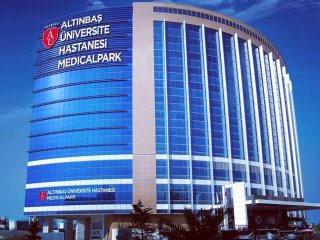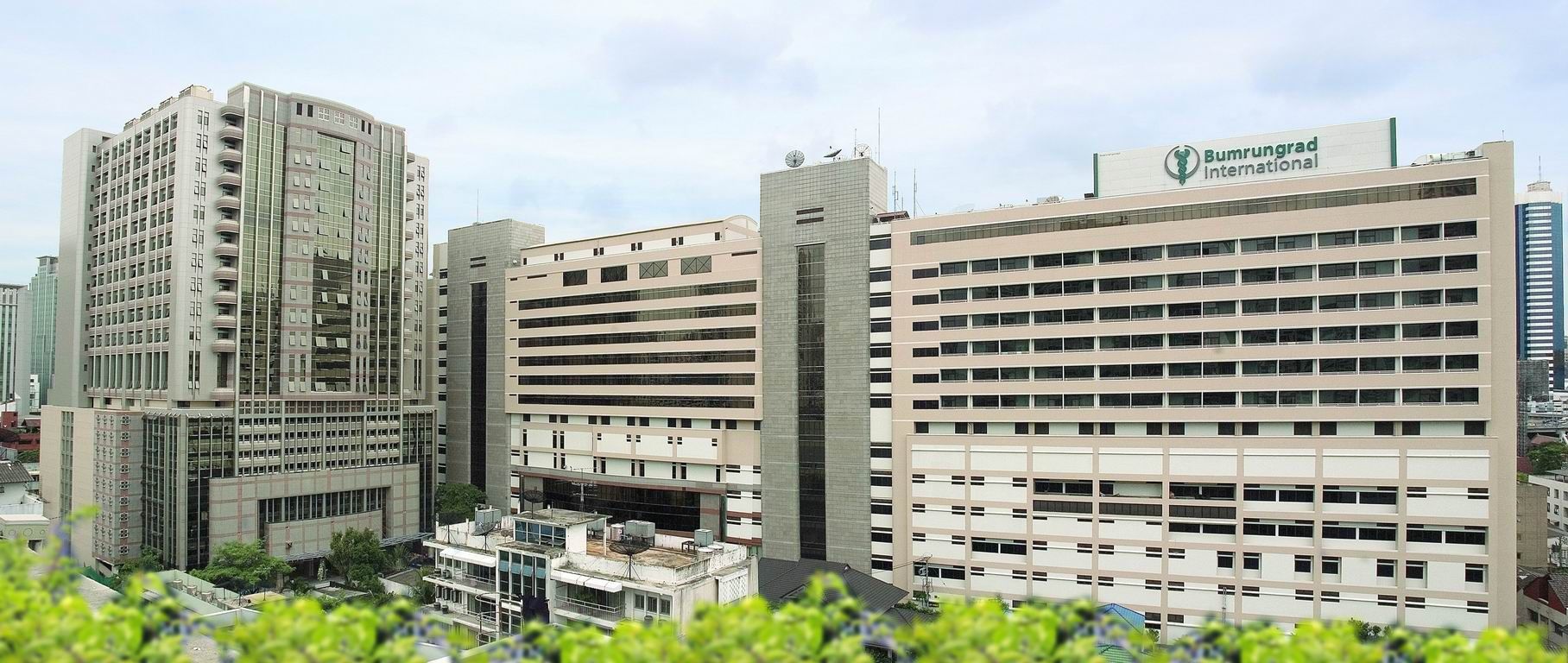General Surgery
Anal Dilatation
Anal Dilatation
Anal dilatation is a minimally invasive procedure used to relieve anal stenosis and fissures. Learn about the procedure, benefits, risks, and recovery for better bowel health.
Anal dilatation is a surgical intervention whereby the anal canal is dilated by fingers or dilator. It is primarily performed to cure obstructions that lead to the constriction of the anal canal such as anal stenosis or post-operative scarring.
Anal Dilatation Indications
The anal dilatation is typically prescribed in the following situations:
- Anal stenosis (narrowing of the anal canal through scar tissue, surgery or chronic inflammation).
- Post hemorrhoidectomy complications in which scarring results in tightness.
- Inborn diseases such as anorectal malformations in children.
- It is painful to defecate because of tight anal sphincter or fissure.
- Conservative management should be used as a preliminary step before any surgical procedure such as sphincterotomy is done.
Anal Dilatation Procedure
Patient Preparation
- Positioning: Patient is normally positioned in lithotomy (lying on the back with legs elevated) or side-lying position.
- Hygiene: The rectum is sponged with antiseptic solution.
- Anaesthesia: According to age, tolerance to pain, and severity:
- Adults: Local anaesthesia (ointment or injection).
- Sedation or general anaesthesia of children or nervous patients.
- Consent: The consent is taken by the patient or their guardians after the description of the procedure and risks.
Lubrication
- To minimise trauma and pain, a lubricant made of water is used on the fingers or anal dilators.
Dilatation Technique
Finger Dilatation:
- A lubricated finger with gloves is carefully thrust into the anal canal.
- The anal sphincter is steadily and gradually lengthened.
- The stretching process is sustained between 1 and 2 minutes and the finger taken out.
Dilator Dilatation (in case of severe stenosis or children):
- Graded anal dilators of all sizes are inserted.
- Each size is held concentration on a couple of minutes followed by transferring the size to the next larger size.
- The process can be carried out on a daily basis or after every few days, as per the condition.
Post-Procedure Care
- Not severe pain or discomfort is normal between 1 and 2 days.
- High-fiber diet or stool softener is to be used to prevent trauma.
- Warm sitz bath can be effective to relieve pain and relaxation of the muscles.
- Prescription is normally to carry on with regular dilatation at home.
Duration
- The sessions typically take 5 to 10 minutes.
- Different sessions can be needed in days to weeks as per the severity.
Anal Dilatation Treatment
Anal dilatation may be used as a non-surgical (conservative) form of treatment or as an after surgical management option:
Conservative Treatment
- In mild to moderate anal stenosis.
- Slowly done by fingers or anal dilators.
- Helps loosen anal sphincter and loosen scar tissue.
- Fiber-rich diet, sitz bath, and some stool softeners are often used together with them to achieve better results.
Post-Surgical Treatment
- Following operations such as hemorrhoidectomy, fissurectomy or congenital anorectal operation.
- Prevent reoccurrence of stenosis.
- May needs long term or intermittent anal canal dilatation to stay patent.
Anal Dilatation Surgery
Anal dilatation surgery is an operation to dilate a narrowed anal canal (anal stenosis) which cannot be treated by conservative dilatation only. It is less manual or home dilatation and is more controlled and precise.
Types of Surgical Anal Dilatation:
Manual/ Controlled Surgical Dilatation
- Under general or regional anaesthesia.
- Surgeon extends the anal canal gradually with the help of special dilators so that they do not damage the sphincter.
- Normally performed either once or a few times based on the severity.
Sphincterotomy (if needed)
- Tension is relieved by making a small incision at the anal sphincter in certain instances.
- Helps enlarge the canal and avoidance of stenosis.
Skin Flap or Reconstruction Surgery
- It is applied when there is severe scarring or natural constriction.
- The reconstruction of the anal canal and the preservation of anal patency are achieved with the help of a piece of skin of the perianal area.
Anal Dilatation for Fissure
Anal fissure is a minor tear of the lining of the anal canal, which is usually created by constipation, hard stools, or non-healing strains. The symptoms consist of pain in the course of and following defecation, bleeding, and anal sphincter spasms.
Why Anal Dilatation Helps?
- Relaxes sphincter spasm: Anal fissures tend to be aggravated by rigidness of the internal anal sphincter.
- Enhances blood circulation: Canal stretching enhances blood flow to the fissure aiding in healing.
- Makes the bowel movements easier: Trauma to the fissure is minimized during defecation.
Anal Dilatation Recovery Time
The following is an in-depth definition of Anal Dilatation Recovery Time.:
Immediate Recovery
- Anal dilatation is largely a minor procedure, and it is usually an outpatient or a day-care procedure.
- The patients are normally allowed to go home the same day.
- Slight pain, discomfort or a sense of fullness of the anal region is normal within several hours up to two days.
Pain and Discomfort
- Slight pain on bowel movement can take 1-3 days.
- Stools softeners and warm sitz baths are used to alleviate pain.
Bowel Movements
- Normal bowel movements are normally restored in 1-2 days.
- The initial few days should not be strained to avoid trauma.
Full Recovery
The majority of patients typically recover in 1-2 weeks and it is based on:
- Anal stenosis or fissure severity.
- Whether surgery was done or only manual dilatation.
- Compliance with patient to care after the procedure.
Follow-Up
Chronic conditions may be recommended to be followed up regularly to ensure:
- Anal canal remains open
- None of stenosis or fissure recurrence.
- In cases of home dilatation, it is sometimes recommended that the home dilatation should last 1-2 weeks to sustain the outcomes.
Factors Affecting Anal Dilatation Cost
The price of anal dilatation is subject to an enormous fluctuation based on several factors:
Type of Procedure
- Conservative/manual dilatation: It is less expensive because it is an outpatient procedure and has minimum equipment.
- Surgical dilatation (anaesthesia or sphincterotomy): This is more expensive as it involves use of operating room, anaesthesia and aftercare.
- Reconstructive surgery or flap surgery: The most costly because of difficulty and prolonged recovery.
Hospital or Clinic
- Specialty clinics or private hospitals are more expensive than the public ones.
- The pricing is influenced by the reputation and location of the hospital.
- The high-surgical and post-operative care facility can be more expensive.
Anaesthesia Type
- Local anaesthesia: Cheaper.
- Sedation or general anaesthesia: This is more expensive because there is the cost of the anaesthesiologists and the usage of the operating room.
Duration and Complexity
- Simple dilatation: Brief process, low prices.
- Chronic or severe stenosis: Can take several sessions or a complicated surgery, which creates a higher cost.
- Such related interventions as skin flap repair or sphincterotomy increase total cost.
Geographic Location
- Prices depend on the city and nation.
- Big cities and hospitals with a world-famous status tend to be more expensive.
Hospital Stay
- Outpatient procedures are cheaper.
- Observation or hospitalization procedures that demand an overnight stay are more expensive.
Drugs and After-Care
- Pain medicine, stool softeners and ointments are optional.
- Additional expenses may also be included in the form of follow-up visits and instructions on home-care.
Age and Patient Condition
- Patients or children with inheritable problems might require specialized care and this adds to the cost.
- Comorbid patients can be asked to undergo further monitoring or tests.
Best Hospital for Anal Dilatation
- Artemis Hospital, Gurgaon
- Medanta-The Medicity, Gurgaon
- Fortis Memorial Research Institute, Gurgaon
- Max Hospital, Saket
Conclusion
Anal dilatation is a safe and efficient surgery used to treat diseases that lead to anal canal narrowing; clinical examples include anal stenosis, chronic fissures and scarring after surgery. It may be done manually using fingers or dilators or may be done operationally under anaesthesia in case of severe cases. The operation is used to ease pain, decrease sphincter spasm, enhance the bowel movement, and heal, which usually eliminates the necessity of further surgery. The recovery is normally fast with majority of the patients returning to regular activities within 1-2 weeks, when the post-procedure care has been adhered to.
Why Choose GetWellGo for Anal Dilatation Treatment?
GetWellGo is regarded as a leading supplier of healthcare services. We help our foreign clients choose the best treatment locations that suit their needs both financially and medically.
We offer:
- Complete transparency
- Fair costs.
- 24 hour availability.
- Medical E-visas
- Online consultation from recognized Indian experts.
- Assistance in selecting India's top hospitals for Anal Dilatation treatment.
- Expert surgeon with a strong track record of success
- Assistance during and after the course of treatment.
- Language Support
- Travel and Accommodation Services
- Case manager assigned to every patient to provide seamless support in and out of the hospital like appointment booking
- Local SIM Cards
- Currency Exchange
- Arranging Patient’s local food
FAQ
Is anal dilatation painful?
- The procedure is associated with mild discomfort or soreness. Local anaesthesia, sitz baths, or pain medications are typically sufficient to deal with pain.
How long does recovery take?
- A majority of the patients get better in 1 to 2 weeks. The regular bowel motions usually resume within 12 hours to two days, accompanied by mild soreness among a few days.
Is it possible to conduct anal dilatation at home?
- In some cases, mild cases or follow-up could be carried out at home with medical supervision. Home dilatation should be done cautiously to prevent injury as well as infection.
Is surgery always required?
- No. Manual/conservative dilatation can be enough. Surgery is done in case of severe stenosis or failure to respond to conservative therapy.
How often is dilatation done?
- Frequency varies depending on severity: in the beginning short period daily and with time, gradually decreased. Follow-up dilatation may be necessary regularly in chronic conditions.
TREATMENT-RELATED QUESTIONS
GetWellGo will provide you end-to-end guidance and assistance and that will include finding relevant and the best doctors for you in India.
A relationship manager from GetWellGo will be assigned to you who will prepare your case, share with multiple doctors and hospitals and get back to you with a treatment plan, cost of treatment and other useful information. The relationship manager will take care of all details related to your visit and successful return & recovery.
Yes, if you wish GetWellGo can assist you in getting your appointments fixed with multiple doctors and hospitals, which will assist you in getting the second opinion and will help you in cost comparison as well.
Yes, our professional medical team will help you in getting the estimated cost for the treatment. The cost as you may be aware depends on the medical condition, the choice of treatment, the type of room opted for etc. All your medical history and essential treatment details would be analyzed by the team of experts in the hospitals. They will also provide you with the various types of rooms/accommodation packages available and you have to make the selection. Charges are likely to vary by the type of room you take.
You have to check with your health insurance provider for the details.
The price that you get from GetWellGo is directly from the hospital, it is also discounted and lowest possible in most cases. We help you in getting the best price possible.
No, we don't charge patients for any service or convenience fee. All healthcare services GetWellGo provide are free of cost.
Top Doctors for General Surgery
Top Hospitals for General Surgery
Contact Us Now!
Fill the form below to get in touch with our experts.







